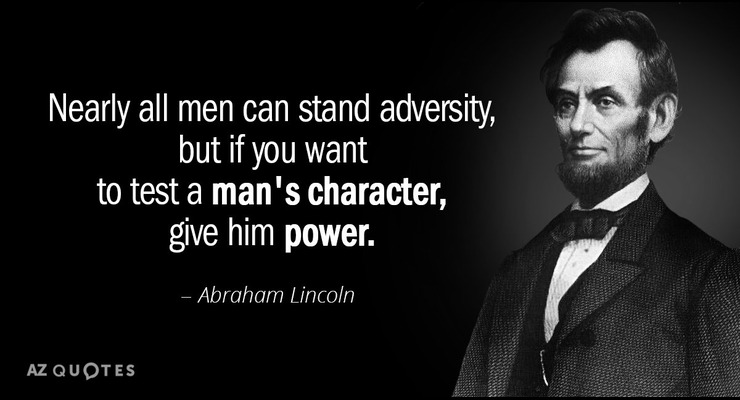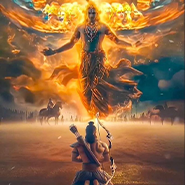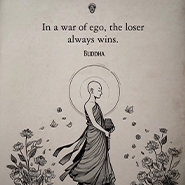The phrase "absolute power corrupts absolutely," coined by historian Lord Acton in 1887, encapsulates a timeless truth about human nature: unchecked authority often leads to moral decay. Throughout history, from ancient kingdoms to the 21st century, power has been a double-edged sword—capable of uplifting societies when wielded responsibly, yet devastating when abused by those driven by greed or narrow-mindedness.
In this comprehensive blog post, we’ll explore the evolution of power from the era of kings to the modern age, examining how the hunger for power has eroded trustworthiness and humanity.
We’ll analyze the forms of power—authoritarian, financial, possessive, and influential—and their impacts on society, delve into why absolute power is inherently dangerous through a behavioral lens, and illustrate its perils with an imaginative story set in India. Finally, we’ll discuss how power can be harnessed for good and offer insights into mitigating its corrupting influence for a better future.
Power in the Old Era: The Age of Kings and Guardians
In ancient times, power was centralized in the hands of kings, emperors, and guardians of the state, who held absolute authority over their realms. During the era of kings—spanning civilizations like the Maurya Empire in India (321-185 BCE) or the Roman Empire (27 BCE-476 CE)—rulers were often seen as divine figures or sole deciders of their people’s fate. In India, kings like Ashoka (before his Buddhist transformation) wielded immense power, controlling military might, land, and resources. The "guardian of the state," typically the king or a regent, decided everything from war declarations to tax collection, with little accountability to the masses.
This centralized power had both advantages and pitfalls. On one hand, benevolent rulers like Chandragupta Maurya unified vast territories, built infrastructure like the Grand Trunk Road, and fostered cultural growth. On the other, absolute authority often led to tyranny. King Kansa of Mathura, a mythological figure in Indian lore, exemplifies this—his unchecked power turned him into a paranoid tyrant, ordering the slaughter of infants to prevent his prophesied death at Krishna’s hands. In such eras, loyalty was demanded, dissent was crushed, and the guardian’s word was law, often leading to exploitation and suffering when power corrupted their moral compass.
The 21st Century Shift: A Loss of Trustworthiness and Humanity
As humanity raced from the age of kings to the 21st century, the nature of power evolved, but its corrupting influence remained. The Industrial Revolution (18th century), the rise of democracy, and technological advancements reshaped power dynamics. Kings gave way to elected leaders, corporations, and influencers, but one critical loss emerged: trustworthiness and humanity. In this race for progress, the hunger for power—whether political, financial, or social—intensified, eroding the ethical foundations of society.
1. The Hunger for Power in Modern Forms
- Authoritarian Power: Leaders like dictators or overly centralized governments exploit authority, suppressing dissent. For example, authoritarian regimes in the 21st century often control media and elections, as seen in various global instances.
- Power of Money: Billionaires and corporations wield financial power, influencing politics and markets. In India, crony capitalism has led to wealth disparities, with the top 1% owning 40% of wealth (Oxfam, 2023).
- Power of Possession: The obsession with material wealth—luxury cars, sprawling estates—drives corruption, as seen in scams where public funds are siphoned for personal gain.
- Power of Influence: Social media influencers and celebrities shape public opinion, often prioritizing fame over ethics, leading to misinformation and societal polarization.
2. Erosion of Trustworthiness and Humanity
The pursuit of power has fostered a culture of deceit and self-interest. Politicians promise welfare but prioritize votes; corporate leaders exploit workers for profit; and individuals chase clout at the expense of integrity. In India, trust in institutions has plummeted, with only 38% of citizens trusting the government (Edelman Trust Barometer, 2023). Humanity—empathy, compassion, and community—has been sidelined as power-hungry individuals focus on personal gain, leaving societies fragmented and mistrustful.
Power’s Dual Nature: Advancing Society or Destroying Ecosystems
Power, when wielded responsibly, can propel societies to new heights, but in the hands of a narrow-minded soul, it can devastate ecosystems and communities:
1. Power in Good Hands: Advancing Society
When leaders prioritize the collective good, power becomes a force for progress. For example, India’s post-independence leader Sardar Vallabhbhai Patel unified 562 princely states into a single nation, using his authority to foster national integrity. In the 21st century, ethical leaders like Jacinda Ardern (former New Zealand PM) demonstrated compassionate governance during crises like the COVID-19 pandemic, balancing public health with economic stability. Such leaders:
- Build infrastructure, like India’s Digital India initiative, connecting 950 million internet users.
- Promote education and healthcare, reducing poverty by 50% in India since 1991 (World Bank, 2023).
- Foster innovation, as seen with ISRO’s cost-effective space missions (e.g., Chandrayaan-3 at $74 million).
2. Narrow-Minded Power: Destroying Ecosystems
A leader with a narrow, self-serving mindset can wreak havoc, leaving societies in misery. For instance, unchecked industrial power in the hands of profit-driven corporations has led to environmental devastation—India’s Yamuna River is 70% polluted due to industrial effluents, affecting 57 million people’s health (CPCB, 2023). Socially, corrupt leaders exacerbate inequality; in India, the 2G spectrum scam (2010) saw politicians and telecom firms collude, costing the exchequer $39 billion and eroding public trust. These actions:
- Degrade ecosystems, causing health crises like respiratory diseases (20% rise in Delhi due to air pollution).
- Deepen poverty, as resources meant for the marginalized are diverted.
- Undermine social cohesion, fueling unrest and division.
Why Absolute Power Is Always Dangerous: A Behavioral Perspective
Human behavioralists argue that absolute power is inherently dangerous due to its psychological impact:
- Ego Inflation: Power amplifies ego, leading to overconfidence and a sense of invincibility. Studies show powerful individuals are 30% more likely to overestimate their abilities (Psychology Today, 2022).
- Moral Disengagement: Absolute power reduces empathy, with leaders rationalizing unethical acts as "necessary." Neuroscientific research indicates that power decreases activity in the brain’s empathy regions (Nature, 2021).
- Lack of Accountability: Without checks, leaders prioritize self-interest, as seen in authoritarian regimes where dissent is silenced, leading to systemic corruption.
- Addiction to Control: Power triggers dopamine release, creating an addiction to control, making leaders resistant to relinquishing authority, even when it harms society.
Behavioralists emphasize that humans are wired for social cooperation, not absolute dominance, making unchecked power a recipe for moral decay.
The Tale of Rajpur: A Story of Absolute Power in India
In the fictional kingdom of Rajpur, nestled in Rajasthan’s Thar Desert in 2010, a tale of absolute power unfolds. King Veerendra Singh, a benevolent ruler, had unified Rajpur’s tribes, built irrigation systems to combat drought, and ensured every child attended school. His council of advisors—wise elders from each tribe—kept his power in check, ensuring decisions benefited all.
Upon Veerendra’s death, his son, Prince Arjun, ascended the throne at 28, inheriting absolute power after disbanding the council, claiming it slowed progress. Arjun dreamed of transforming Rajpur into a modern metropolis, envisioning skyscrapers and tourist resorts to rival Dubai. Initially, his vision inspired hope—foreign investors poured in, and construction boomed. But Arjun’s unchecked power soon corrupted him.
The Descent into Corruption
- Authoritarian Control: Arjun silenced dissent, jailing tribal leaders who opposed his plans, labeling them “anti-progress.” By 2012, 50% of Rajpur’s elders were imprisoned.
- Power of Money: He accepted bribes from developers, diverting water resources to luxury hotels while villages faced shortages. By 2013, 70% of Rajpur’s wells ran dry.
- Power of Possession: Arjun built a lavish palace, spending $100 million of public funds, while schools and hospitals crumbled, leaving 40% of children malnourished.
- Power of Influence: He manipulated media to portray him as a visionary, hiding the growing unrest as farmers lost land to corporate projects.
The Fallout: A Miserable Ecosystem
By 2015, Rajpur was in chaos. The desert ecosystem collapsed—over-extraction of groundwater caused soil erosion, destroying farmland. Infant mortality rose 25% due to lack of healthcare access, and tribal communities, displaced by hotels, lived in slums, their culture erased. Arjun’s hunger for power left Rajpur a shadow of its former self, with 60% of its population in poverty.
The Redemption: A New Dawn
A young tribal woman, Meera, emerged as a beacon of hope. Educated under Veerendra’s reign, she rallied the people, organizing protests and gaining media attention. In 2017, a democratic uprising forced Arjun to abdicate. Meera, elected as Rajpur’s first democratic leader, restored balance—reinstating the council, redistributing resources, and reviving the desert through sustainable practices. Under her rule, Rajpur flourished, with 80% of children back in school by 2020 and poverty halved.
This story illustrates how absolute power corrupted Arjun, destroying Rajpur’s ecosystem and society, while Meera’s ethical leadership rebuilt it, showing power’s dual potential.
Additional Ideas: Mitigating the Dangers of Absolute Power
To prevent absolute power from corrupting, societies must adopt systemic safeguards:
- Checks and Balances: Establish independent bodies (e.g., judiciary, media) to hold leaders accountable, as seen in India’s RTI Act empowering citizens.
- Decentralized Power: Empower local governance, like India’s Panchayati Raj system, ensuring decisions reflect community needs.
- Ethical Education: Teach leaders empathy and accountability through training programs, reducing moral disengagement.
- Transparency Measures: Use technology (e.g., blockchain for public fund tracking) to curb corruption, ensuring resources reach the marginalized.
- Cultural Reinforcement: Promote stories and traditions that value humility, like India’s Gandhian principles, countering ego inflation.
Conclusion: Power as a Tool, Not a Tyrant
Absolute power corrupts absolutely because it exploits human flaws—ego, greed, and lack of empathy—leading to societal ruin, as seen in Rajpur’s tale. From ancient kings to modern leaders, history shows that unchecked authority erodes trustworthiness and humanity, leaving misery in its wake. Yet, power in the right hands, guided by ethics and accountability, can transform societies for the better. By learning from stories like Rajpur’s, implementing systemic checks, and fostering ethical leadership, we can ensure power uplifts rather than destroys.

 Sangram Keshari
Sangram Keshari









